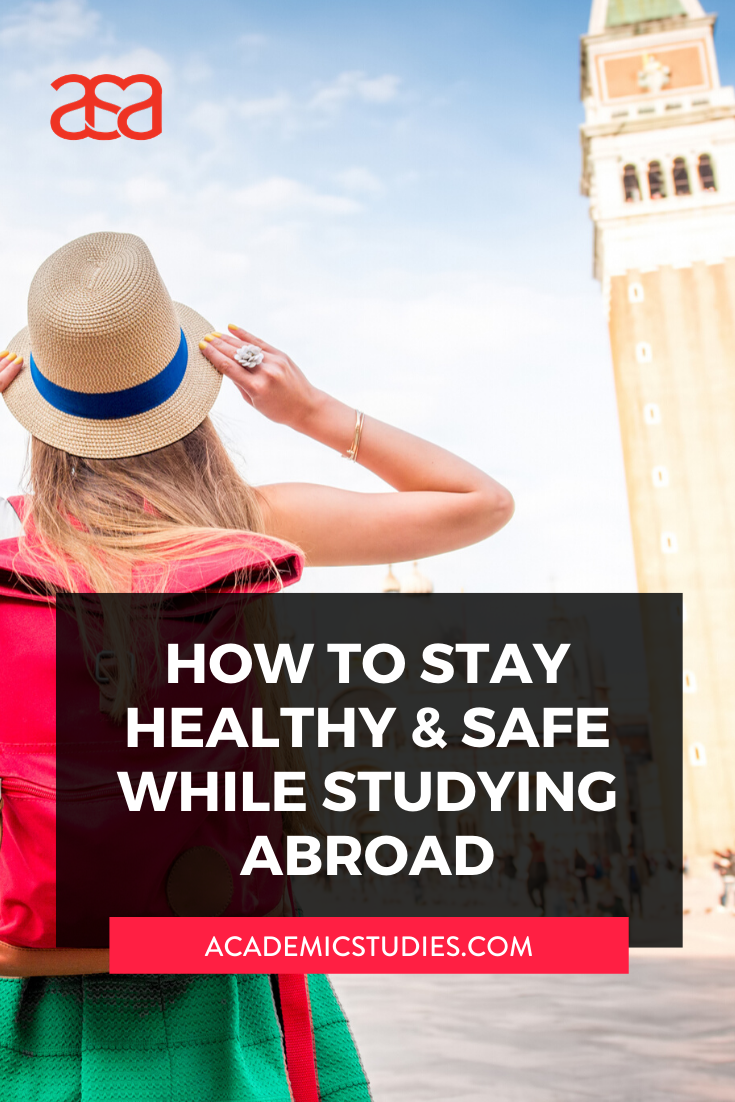How to Stay Healthy & Safe While Studying Abroad [ASA Health & Safety]
How to Stay Healthy & Safe While Studying Abroad
Health and safety is the number one priority of all parties involved in sending a student to study abroad: ASA, Site Directors, their parents and the students. Because of how concerned with our with our students’ health and safety, we wanted to ease everyone’s minds with information on the resources and tools students are equipped with while abroad.
These resources and tools include:
Medical Insurance
Included in fees
No copay or deductible
Detailed description of coverage can be found on ASA’s website
Safeture App
Allows you to contact emergency services anywhere in the world
Gives your exact location to emergency services and ASA
Notifies you of any crisis near you in real time
ASA will email you our subscription code shortly before your program start date
ASA On-Site Staff
Site Directors are on-site in all locations & are there to support students locally throughout their stay & are available 24/7 in case of emergency
Staff page on our website has photos of our Site Directors
Emergency Contacts
ASA Site-Specific Guide has Site Director’s phone # as well as the number for local police, ambulance, US Embassy & other emergency services
ASA U.S. 24/7 Emergency cell: 857-366-6821
Your medical insurance card will have a 24-hour emergency # as well
As far as health goes, students who require prescriptions for any number of reasons usually find it easier to bring their medications with them abroad, because many pharmacies do not permit patients to fill prescriptions written by doctors outside of their country. Since there are many luggage limitations when flying, here are some things to note for bringing medication abroad:
Prescription medication
Bring enough to last entire program
Not all medications are available abroad
Contact your doctor 6 weeks before departure to make sure you can do this
Pack medications in their original containers & put in your carry-on
Pack doctor’s note confirming that medication is prescribed to you, the dosage, the medical condition & your doctor’s contact info
Over-the-counter meds
Bring anything you’re used to taking at home with you abroad because your favorite formulations may not be available abroad
Includes: allergy, cold/flu, stomach, etc. medicine
While insurance, safety apps, contacts and medications cover the major aspects of health and safety, there are many other variables that play into keeping students safe and healthy while abroad.
One thing that not many people would think to do is to check with your parent and/or doctor back home if you are sick abroad and prescribed something new in your host country. Some countries abroad are more willing to prescribe more intense medications or have different types, so it is also best to run it by your primary care physician in the U.S. (or have your parents run it by them if you cannot contact them).
Another tip we have (for iPhone users) is to share your location indefinitely with your friends abroad on iMessage. Even if you are using a different sim card, they will still be able to track your location using their data or WiFi (if they don’t have a plan with much data). While the Safeture app gives your location to ASA and emergency services, it is beneficial for those that are constantly around you to have your location in case you are separated from them and not answering your phone. Better safe than sorry!


